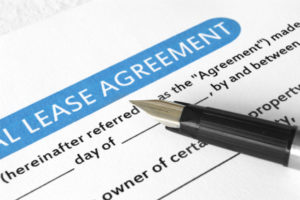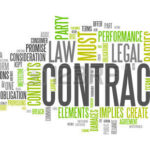 A Commercial lease is a tenancy whereby a Landlord rents out his property for non-residential use. In other words, all other uses apart from residential use are classed as commercial use notwithstanding that the intended tenant is a non-profit making organisation.
A Commercial lease is a tenancy whereby a Landlord rents out his property for non-residential use. In other words, all other uses apart from residential use are classed as commercial use notwithstanding that the intended tenant is a non-profit making organisation.
Commercial premises may be standalone or part of a small or large Commercial Complex. Depending on the size, the following are examples of terms that can feature in a commercial Lease (some are of course standard features):
Parties
The full name and address of both Lessor and Lessee
Premises
A full description of the property/premises to enable proper identification of the subject matter of the Lease. Apart from the address, this can include the floor on which the property is located and its dimension in square metres.
Term
This states the period of the Lease, including the commencement date and whether or not the Lease is for a fixed term. In the case of a fixed term tenancy, the Lease comes to an end once the period is up and there is no assumed or automatic renewal as in the case of a yearly tenancy.
If a tenant wants to remain in the property after the term expires, he has to formally request for a new Lease which the Landlord may or may not grant. A tenant who remains in possession after his fixed term Lease expires is regarded as holding over and is still obliged to pay for the period of his holding over. At that stage, a Landlord is entitled to immediate possession without a need to serve a quit notice.
Possession must however be recovered lawfully and without a breach of the peace. Though a commercial Lease normally provides for peaceful re-entry, section … requires a Landlord to approach the court for an order of possession.
Use
This states the only use or category of use permitted under the Lease.
Prohibited Uses
This specifically underlines uses that are prohibited in addition to those generally excluded under the ‘permitted use’ clause.
Rent and Rate Per Square Metre
This states the annual and total rent due and payable in advance as agreed to by the parties. Commercial property within Lagos Central Business District and other prime developments up and down the Country are normally Leased on a rate per square metre. This rate is multiplied by the total floor space area in square metres to arrive at the annual rent.
Interest
If the Landlord does not receive any sum due to him by the due date, he may demand interest on such sum at five per cent (5%) above bank base rate from the due date until payment (before and after any judgment).
VAT
Where Value Added Tax of 5 percent is payable on rent.
Withholding Tax
This is an indirect tax deducted at source from the invoices of the tax payer.
A Commercial Lease may therefore distinguish between gross rent and rent net of witholding tax.
Rent Review and Escalation Clauses
This states at what period in time rent will be reviewed with view to an increase.
It may also place a cap on the percentage of the increase so as to protect the Tenant from a large increase.
Security Deposit
This is a deposit requested by the Lessor to secure the Lessee’s compliance with obligations during the Lease period. This is normally expressed as a percentage of rent and is refundable in full at the end of the Lease provided the Lessee is not indebted to the Lessor and has vacated the premises in a good state of repair.
Service Charge
The Lease will normally contain provisions identifying services the Lessor will provide for the general maintenance of the property and the common benefit of tenants. This will usually refer to a service charge budget to be prepared periodically from which each Lessee will be sent their proportionate share of service charge cost.
Rates and Outgoings
Under this clause, a Lessee will usually be held responsible for payment of existing and future rates and other outgoings levied by parliament or a public authority upon the premises or the owner of the premises or other occupier thereof.
Break clause
This is a date in the lease agreed to by the parties when the lease can be ‘broken’ without anyone facing a penalty. Beside this, a Tenant may end a Lease early with the consent of the Landlord by assigning the Lease to someone else though the Landlord may require the Tenant to act as Guarantor to the new Lease to ensure the new Tenant fulfills his obligations. Without ending the Lease early in accordance with the terms of the Lease, a Tenant will continue to be liable for rents due under the Lease.
Break clauses are however not so common in Nigeria since it is customary for Tenants to pay for the whole period of a Lease rather than by periodic installments during the duration of the Lease.
Forfeiture Clause
A Landlord, on the other hand, may end a Lease early for non-payment of rent after a period of time (usually 21 days) or for other breaches of contract after notice of breach has been served and the Tenant does nothing to rectify the breach. Other events that may attract forfeiture are bankruptcy, insolvency, distress of tenants goods, strike off from Register of Companies in the case of a body corporate.
Alienation
Under this clause, the tenant may not part with possession of premises either by assigning the Lease or subletting it except with the written consent of the Landlord.
Full Repairing and Insuring Leases
Tenants are expected to keep rented premises in good state of repair and condition. Thus many commercial Leases are full repairing and insuring leases. With this, tenants are responsible for all repairs for the duration of their lease as well as for insurance costs connected with their use of the property (Occupiers liability).
The Landlord will usually maintain shared areas and facilities in good working order and then recover the cost from tenants by way of a service charge.
Insurance Obligation
Since the owner of property is legally liable for accidental injury suffered by visitors to the premises, Landlords will usually require tenants to take out third party liability insurance which will cover the Landlord in such eventuality. The Tenant will also contribute to the landlord’s insurance cost of insuring the building proportionate to the area occupied by the tenant.
The idea is that it is the tenants use and occupation of that part of the property which is more likely to put it at risk. This is referred to as Occupier’s liability. In practice, one policy can cover both Landlord’s building insurance and the tenant’s Occupier’s liability. The cost can the be apportioned between Landlord and Tenants based on an agreed ratio. Apart from the Landlord’s building insurance, Tenants may take out a contents policy to insure their own personal effects against fire, burglary and theft.
Additions and Alterations
Tenants may wish to refurbish or redecorate premises to meet their taste or needs. Alterations to the premises will usually require the Landlord’s consent and it is quite common for a clause to require such consent in writing. The same clause will usually require the tenant to restore the premises to its original state at the end of the Lease where the Landlord requires and without causing damage to the property.
Planning
This clause will usually require the tenant to comply with all planning laws and regulations affecting the intended use of the premises, as well as obtain the Landlord’s written consent before any planning application is made.
Lessee’s Right to Peaceful/Quiet Enjoyment
Subject to payment of rent and observance of other terms in the Lease, the Tenant will peaceably enjoy the Premises without any interruption by the Landlord or other person claiming under or in trust for him.
Guarantor
With this, the Landlord may require a third party to stand surety for the Lessee and guarantee that the Lessee will perform his duties and obligations under the Lease.
Option to Renew or Take New Lease
This gives the Tenant the option to renew or ask for a new Lease, usually by giving written notice to the Landlord before the end of the Lease.
Damage/Destruction of Premises
Usually, a Lease continues to subsist where there is damage or destruction to the property. The idea is that this does not automatically mean the property cannot return to a tenantable state. There are usually insurance obligations that are meant to cover such situations. However if there the property is not restored by a time agreed to in the Lease or there is no reasonable prospect of dong so will the Lease become determined.
Rights Granted in Common with Others
Usually in commercial premises, there will be common areas and facilities to be used by the Landlord and/or other occupants. In this case, the Lease will grant collective right to use those common areas and facilities to the Landlord and other tenants so that no one has exclusive use of them. Examples are stairways, entrance hall, passages, car parking areas e.t.c.
Rights Reserved by the Landlord
The Lease may exclude from the tenant and reserve to the Landlord certain rights in respect of the demised premises to enable the Landlord have access to carry out maintenance of the building and facilities. For example, the right to use and to connect to conduits within the premises or to install and construct new conduits at the Premises to serve any part of the building.




